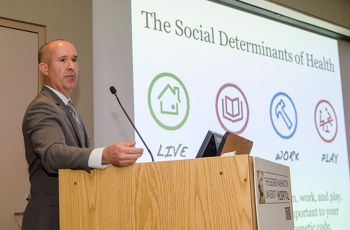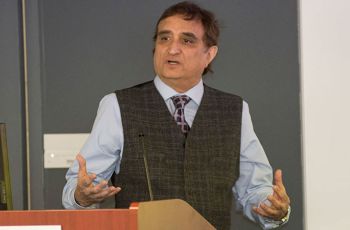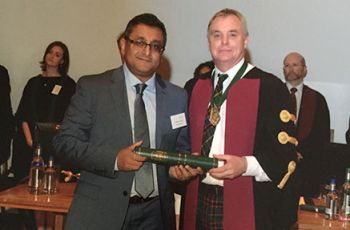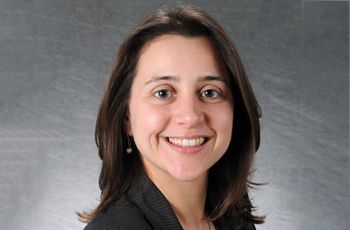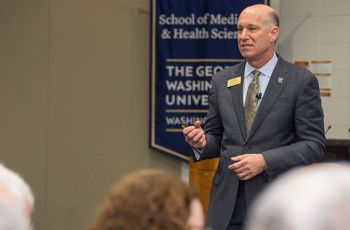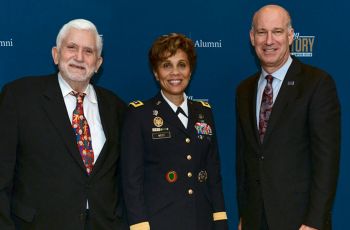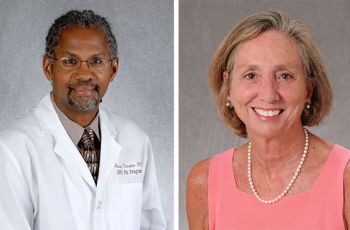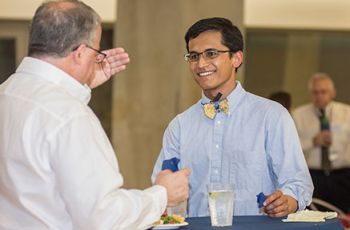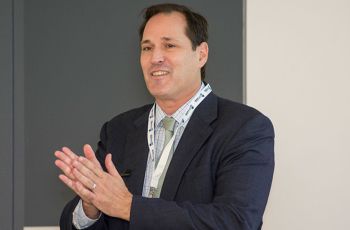News Archive
Michael T. Compton, M.D., M.P.H., offered potential solutions for mental health care during the 14th Annual Jerry M. Wiener, M.D., Lecture in Psychiatry and Behavioral Sciences.
The George Washington University School of Medicine and Health Sciences honored two faculty members who have made outstanding contributions to medical science research during the 2016 Faculty Research Awards.
Sabyasachi Sen, M.D., FRCP, FACP, FACE, associate professor of medicine, has been indoctrinated as a fellow of the Royal College of Physicians in Edinburgh, Scotland.
Mandi Pratt-Chapman, M.A., associate center director for patient-centered initiatives and health equity at the GW Cancer Center, received a $15,000 Tier I Pipeline to Proposal Award from the Patient-Centered Outcomes Research Institute.
Jeffrey S. Akman, M.D. ’81, RESD ’85, vice president for health affairs, Walter A. Bloedorn Professor of Administrative Medicine, and dean, and several key members of his senior staff, discussed the latest developments in SMHS at the dean’s annual State of the School Address.
The GW Cancer Center recently released two new no-cost tools to help comprehensive cancer control professionals enhance their communication efforts and improve care for cancer survivors across the U.S. The resources, produced as part of the GW Cancer Center’s ongoing technical assistance…
Two GW School of Medicine and Health Sciences (SMHS) alumni, André J. Nahmias, M.D. ’57, M.P.H., and Lieutenant General Nadja Y. West, M.D. ’88, received the Distinguished Alumni Achievement Award during this year's Alumni Reunion Weekend.
Lisa Mustone Alexander, professor of physician assistant studies, and Howard Straker, assistant professor of physician assistant studies and of prevention and community health, were elected to leadership positions of the Physician Assistant Education Association. Both Alexander and…
Students and regulatory experts from around the world gathered for four days on the GW camps for the first international annual summer institute, "Issues & Trends in Regulatory Science."
GW alumnus Adam P. Buckley, M.D. ’96, presented on the innovative changes he’s made to the University of Vermont Health Network’s electronic medical records system at the 8th Annual Allan B. Weingold Lecture.
